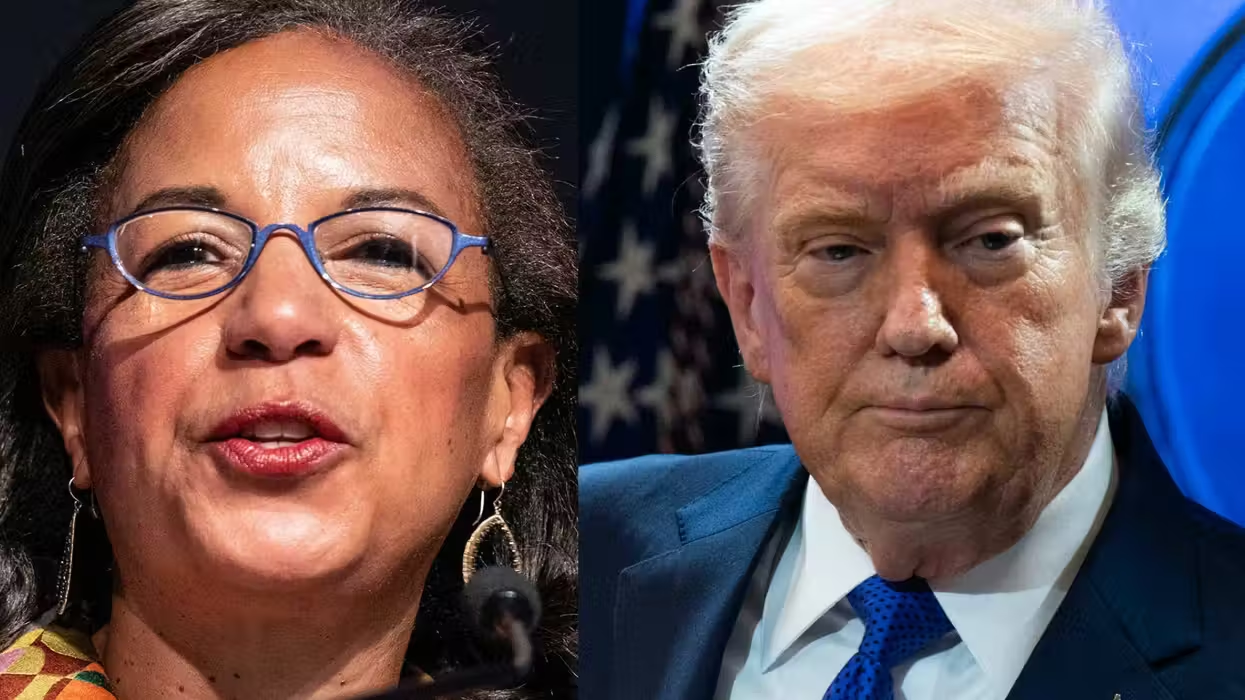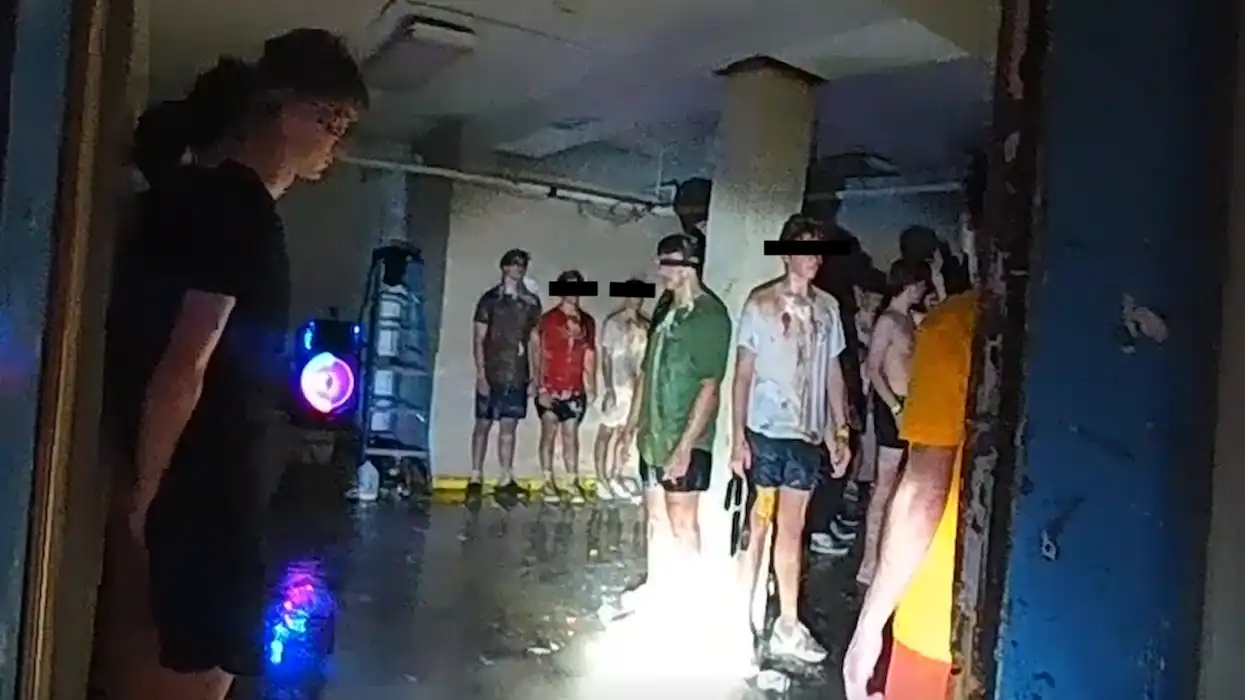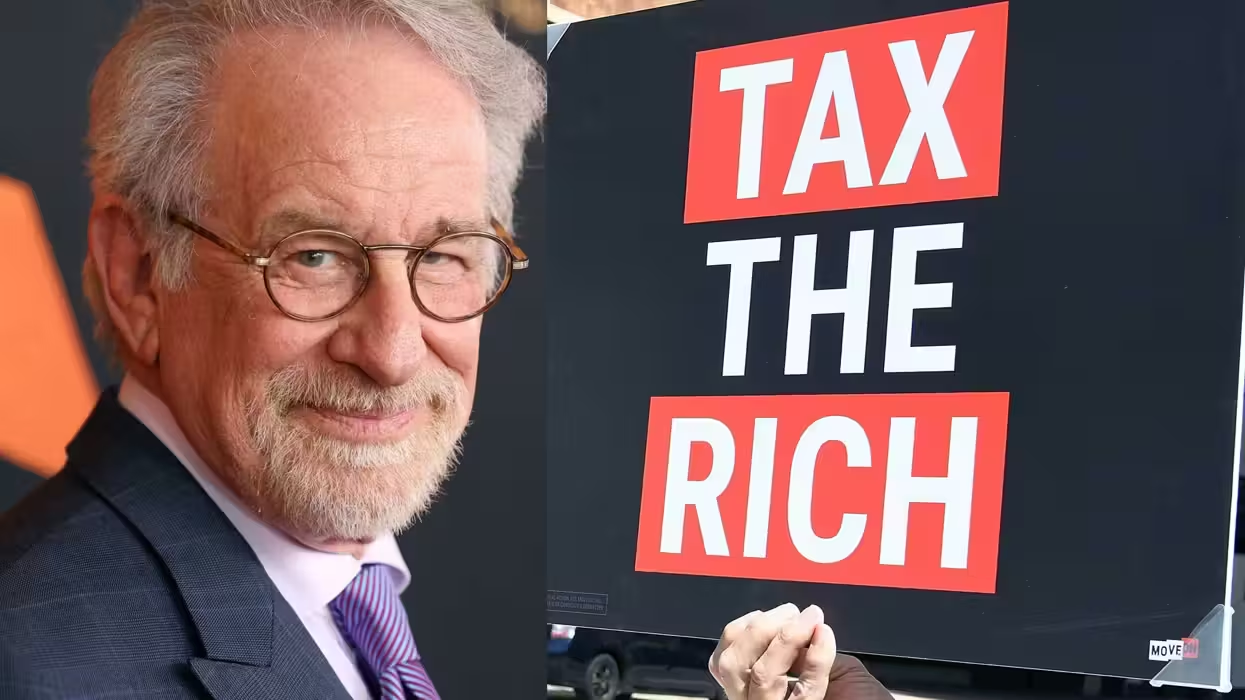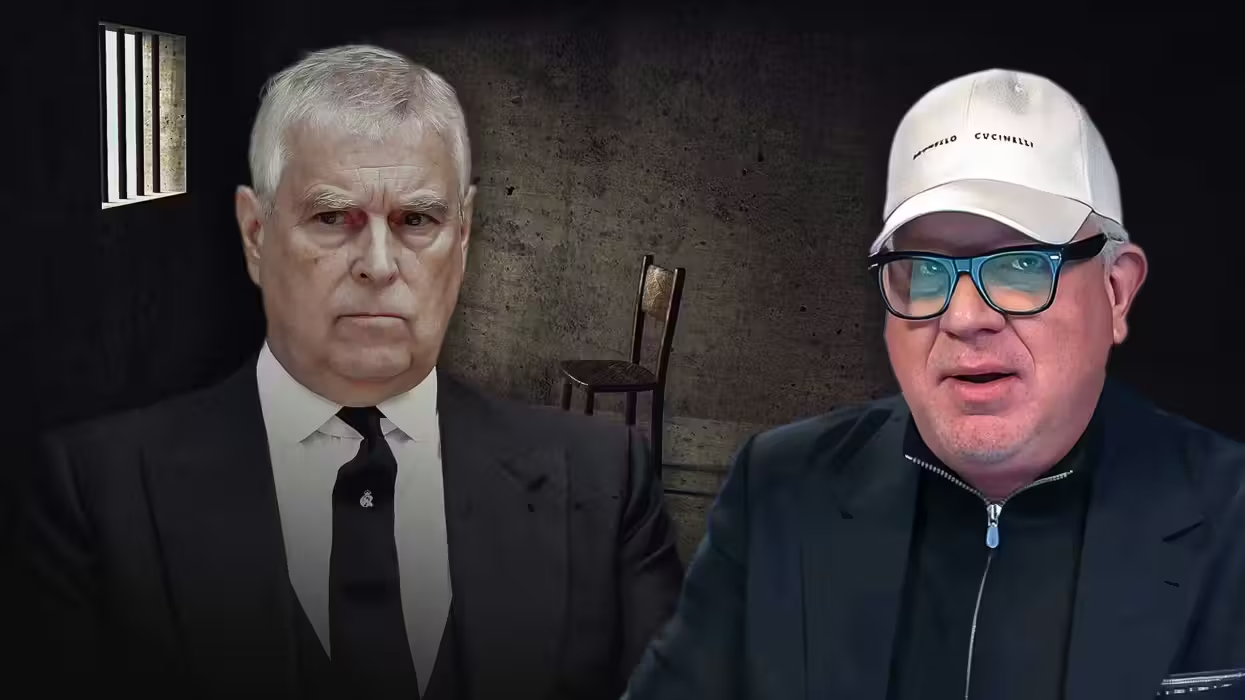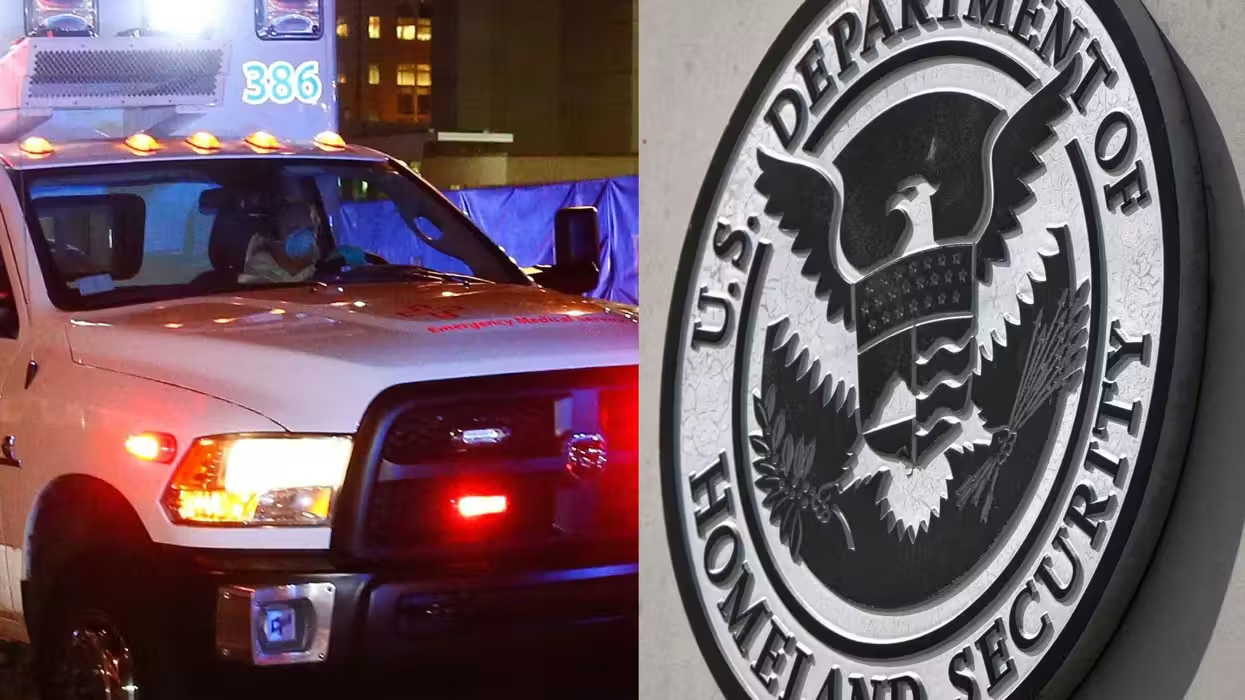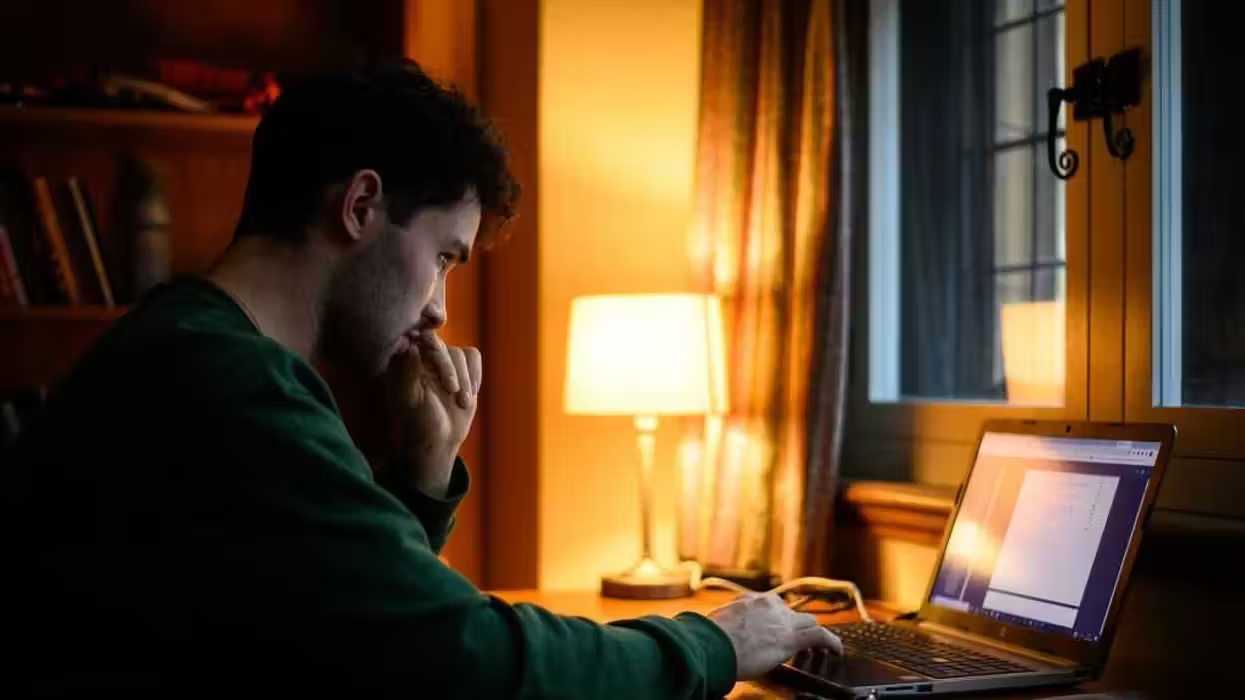
© 2026 Blaze Media LLC. All rights reserved.
Condi Rice Recalls Moment She and Bush May Have Been Poisoned
November 01, 2011
Former Secretary of State Condoleezza Rice is scheduled to release a new book "No Higher Honor," which details her years working in Washington. ABC has released a clip from Rice's upcoming interview with George Stephanopoulos on Dateline Tonight, where Rice describes the frightening situation following 9/11 when, acting as the national security advisor, she was informed by Vice President Dick Cheney that herself, the president, and some White House staff may had been poisoned:
![]()
"'The Vice President came on the screen and said that the White House detectors have detected botulinum toxin, and we were all– those of who exposed were going to die,' Rice told me.He said that?
'Yes, he said that. And I remember everybody just sort of freezing, and the President saying, ‘What was that? What was that, Dick?' Rice, who was the National Security Advisor at the time, said."
It was only a few weeks after September 11, while Rice was in Shanghai with President Bush, that she received Cheney's message. It said that she, the president, Colin Powell and Chief of Staff Andy Card may have all been exposed to botulinum toxin. According to the Center for Biosecurity, the toxin is the “most poisonous substance known” and “extremely potent and lethal.”
ABC's George Stephanopoulus was stunned to learn that for 24 hours it was unclear whether or not the president had been poisoned.
While the book is said to give an in-depth look from Rice's perspective from first joining Bush's campaign in 1999 through his second term after she was promoted to secretary of state, the Wall Street Journal writes that, "For the most part, though, she breaks no new ground:"
"That the second term takes up 38 of the 58 chapters in the book reflects her larger role as the chief advocate of the kinder, gentler foreign policy of the second Bush administration. 'The time for diplomacy is now,' she declared at the 2005 hearings to confirm her as secretary of state—words she added to the remarks her speechwriters had prepared. The implication was clear: The second term would be different from the first.What never comes clear in 'No Higher Honor' is why. Ms. Rice furnishes plenty of detail on the behind-the-scenes maneuvering that consumes the lives of diplomats, but it's possible to finish these 766 pages without coming to understand her boss's broad shift in philosophy or why she was able to change his thinking."
However, the Los Angeles Times writes of several new revelations in the book revealing her viewpoint in diplomatic situations including a "creepy encounter with Col. Moammar Kadafi, who Rice says had an 'eerie fascination with me personally," and that "the Libyan dictator referred to Rice as his 'African princess;" Rice's opinion of then-Lebanese President Emile Lahoud in 2005, that he "had been dressed in a mustard-colored suit that only highlighted his almost cartoonish artificial tan;" as well as what Rice described as "a truly weird scene" when she met with Sudanese President Omar Hassan Ahmed Bashir in the summer of 2005, who "looked as though he was on drugs."
Coming after books from from former Defense Secretary Donald Rumsfeld, former Secretary of State Colin Powell, former President George W. Bush, former Vice-President Dick Cheney, Rice reveals that she regrets going on a shopping trip in New York as Hurricane Katrina and its aftermath were engulfing New Orleans, and repeatedly clashed with Cheney over what to do with captured terrorism suspects.
In Cheney's memoir released this past August, the former vice president presented the notion that Rice misled the president about the United States' nuclear diplomacy with North Korea and tearfully admitted in his office that she was wrong for giving an apology for a 2003 claim that Iraq had been searching for uranium to build nuclear arms. Following the release of Cheney's memoir Rice responded in the media denouncing the former Vice President's claims and criticizing the tone of his memoir. At that time, Colin Powell also joined in to attack what he perceived as "cheap shots" in Cheney's book.
Want to leave a tip?
We answer to you. Help keep our content free of advertisers and big tech censorship by leaving a tip today.
Want to join the conversation?
Already a subscriber?
more stories
Sign up for the Blaze newsletter
By signing up, you agree to our Privacy Policy and Terms of Use, and agree to receive content that may sometimes include advertisements. You may opt out at any time.
Related Content
© 2026 Blaze Media LLC. All rights reserved.
Get the stories that matter most delivered directly to your inbox.
By signing up, you agree to our Privacy Policy and Terms of Use, and agree to receive content that may sometimes include advertisements. You may opt out at any time.


